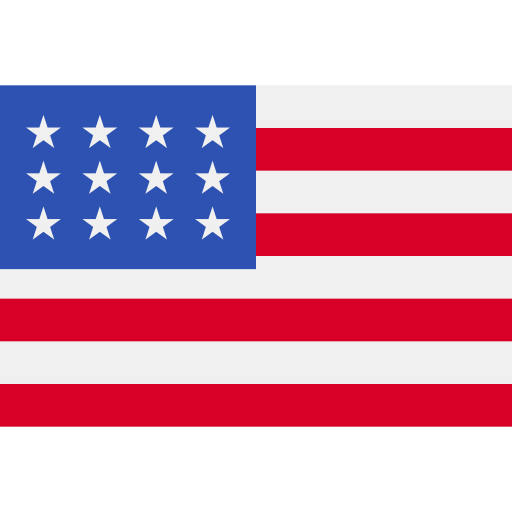Paul Pressler, Disgraced Christian Conservative Leader, Dies at 94
[ad_1]
Paul Pressler, a former Houston appeals court judge who spent decades helping conservatives gain control of the Southern Baptist Convention, the country’s largest Protestant denomination, only to become an embarrassment to its leaders after as many as seven men accused him of sexual abuse, died on June 7. He was 94.
His death was not announced publicly. It was first reported on Saturday by the Christian news outlet Baptist News Global. It was confirmed by Dignity Memorial, a funeral home chain, which did not say where he died.
Judge Pressler died four days before the Southern Baptist Convention held its annual meeting in Indianapolis, where nothing was said about the death, Baptist News Global reported.
Judge Pressler was instrumental in building an internal grass-roots movement that in recent decades moved the denomination toward adopting theological and social positions that were strikingly more conservative than those held in the 1950s, ’60s and ’70s. They include opposing abortion and same-sex marriage, forbidding women to serve as head pastors and interpreting the Bible literally.
Startled by the liberal theology he found in churches while attending boarding school at Phillips Exeter Academy in New Hampshire and later at Princeton University, Judge Pressler, as he wrote in his autobiography, spent the rest of his life trying to root out Christian teaching that he considered biblically unsupported. He used the word liberal to describe a belief that the Bible could contain errors, while he believed a conservative was someone who believed that the Bible was written by God, free of error.
In 1967, he was introduced to Paige Patterson, a like-minded Southern Baptist, and they later met over hot chocolate and beignets at a New Orleans cafe, where they continued to talk past midnight. They went on to work together for years in building a conservative Baptist coalition. Judge Pressler acted as a political operative while Mr. Patterson, a seminarian, was seen as its theologian.
Starting in 1979 and for many years afterward, the coalition succeeded in getting its preferred candidates elected to the presidency of the convention. Those presidents would then appoint other key leaders, who in turn would nominate trustees, all with the aim of overhauling seminaries and other Southern Baptist organizations.
“I have described Paul Pressler as the Steve Bannon of the Southern Baptist Convention,” Mark Wingfield, publisher of Baptist News Global, said in an interview. “The tactics he used in the S.B.C. were political tactics that worked, and were used at a national level. It became a playbook for the Republican Party.”
From the 1970s to the ’90s, Southern Baptists tended to split into two factions: “conservatives” and “moderates.” Conservatives described their work as the “conservative resurgence,” while moderates saw it as a fundamentalist takeover.
Newly empowered conservatives were known to bus people to conventions to get their candidates elected. Where annual meetings of the faithful used to attract 15,000 to 20,000 “messengers,” or delegates, the one in 1985, in Dallas, attracted more than 40,000. Many moderates left the convention in 1990 to form the Cooperative Baptist Fellowship.
Known for his convening power even outside the Southern Baptist Convention, Judge Pressler was a founding member of the secretive Council for National Policy, a networking organization for political conservatives. The group attracted evangelical leaders and donors and would often meet with Republican presidential hopefuls, including George W. Bush.
In 1989, Judge Pressler was President George H.W. Bush’s choice to head the Office of Government Ethics. But he was removed from consideration after the Federal Bureau of Investigation, conducting a routine background check, found what it described only as “ethics problems.” (Officials did not elaborate on the F.B.I. findings except to say that they did not involve accusations of crimes or financial malfeasance.) Mr. Pressler went on to serve on Mr. Bush’s Drug Advisory Committee.
The abuse allegations first emerged publicly in 2004, when a man named Duane Rollins accused Judge Pressler of sexual assault in a Dallas hotel room in 2003. Mr. Rollins said Judge Pressler had threatened him if he came forward, according to The Texas Tribune. Judge Pressler quietly settled the suit for $450,000 in a mediation that also included a confidentiality agreement.
The 2004 settlement became public in 2017, when Mr. Rollins filed another lawsuit, this one accusing Judge Pressler of decades of rape, beginning when Mr. Rollins was a 14-year-old member of the judge’s church youth group in Houston.
The allegations were investigated by denomination officials as part of a larger investigation into how the Southern Baptist Convention had mishandled sex-abuse cases in the past. The convention, which was also named in the 2017 lawsuit, settled with Mr. Rollins out of court for an undisclosed sum in 2023.
By 2024, Judge Pressler had been accused by at least seven men of sexual abuse or sexual misconduct, according to The Texas Tribune. He was never criminally charged and denied any wrongdoing, but the allegations prompted the convention’s lawyer Gene Besen to express outrage, writing on the social media site X this year that Judge Pressler was a “dangerous predator who exploited boys based on his power and his false piety.” He added, “The man’s actions are of the devil.”
As the allegations emerged, Southern Baptist leaders distanced themselves from Judge Pressler but few denounced him publicly. That muted response reflected a challenge they faced: How to show their revulsion over the allegations while finding a way to celebrate what Judge Pressler had championed through the conservative resurgence, said Nathan Finn, a Southern Baptist historian who cataloged Judge Pressler’s papers at Southeastern Baptist Theological Seminary in North Carolina.
“I’m not sure there’s a conservative resurgence if he wasn’t there to channel it into a movement,” said Mr. Finn, the provost at North Greenville University in South Carolina. “It needed at least one person in the room who was a strategic thinker who understands grass-roots movements.”
But Mr. Finn said questions remain about whether the convention’s leadership understood Judge Pressler’s darker side.
“Were there rumors? Were there red flags?” he said. “When did people know? I wonder that.”
Herman Paul Pressler III was born in Houston on June 4, 1930, to Herman P. Pressler Jr., who was a vice president of Exxon Mobil, and Elsie Pressler, who was active in community organizations and helped found their family’s Baptist church.
He went to Phillips Exeter when he was 16 and earned an undergraduate degree in government at Princeton in 1952. As a freshman, he met the dean of Princeton’s chapel, who invited him to have cocktails. He wrote in his 1999 autobiography, “A Hill on Which to Die,” that he was surprised that a preacher would consume alcohol.
After his Princeton graduation, the Navy ROTC commissioned him as an ensign at the Navy Supply Corps School at Bayonne, N.J. In 1957, he received a law degree from the University of Texas, where Townes Hall, the law school building, is named for his great-grandfather Judge John C. Townes. Judge Pressler served as a Democrat in the Texas House of Representatives from 1957 to 1959.
In 1959, he married Nancy Avery, who had just graduated from Smith College in Massachusetts and who shared his concern about liberalism in the churches she had attended.
In Houston, he was a district judge from 1970 to 1978 and served on the Texas 14th Court of Appeals from 1979 to 1992, when he retired and returned to private practice. He switched his party affiliation to Republican in 1982.
Judge Pressler’s survivors include his wife; their two daughters, Jean Pressler Visy and Anne Pressler Csorba; a son, Herman Paul Pressler IV; his brother, Townes Garrett Pressler; seven grandchildren; and 12 great-grandchildren.
During a 25th anniversary celebration of the conservative resurgence at Southern Baptist Theological Seminary in 2004, Judge Pressler spoke of the movement’s success in terms of the Civil War. “It was like Gettysburg but this time, the right side won,” he said to laughter.
His views were distressing to some, including Dwight McKissic, a Black Baptist pastor in Arlington, Texas.
“I thought he had philosophical beliefs about the inerrancy of scripture,” Mr. McKissic said. “In hindsight, was it a cloak to control women, a cloak to control racial inclusion, a cloak to conflate political conservatism with theological conservatism? We had a problem at the root.”
[ad_2]
Read More:Paul Pressler, Disgraced Christian Conservative Leader, Dies at 94

 Canada
Canada Japan
Japan Germany
Germany Australia
Australia United States
United States United Kingdom
United Kingdom China
China France
France Ukraine
Ukraine Russia
Russia Turkey
Turkey
Comments are closed.